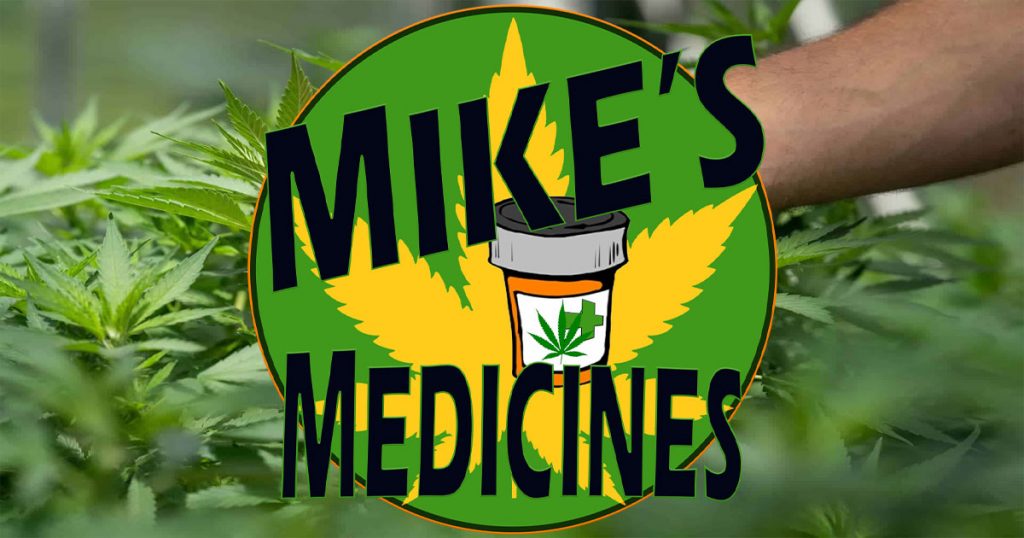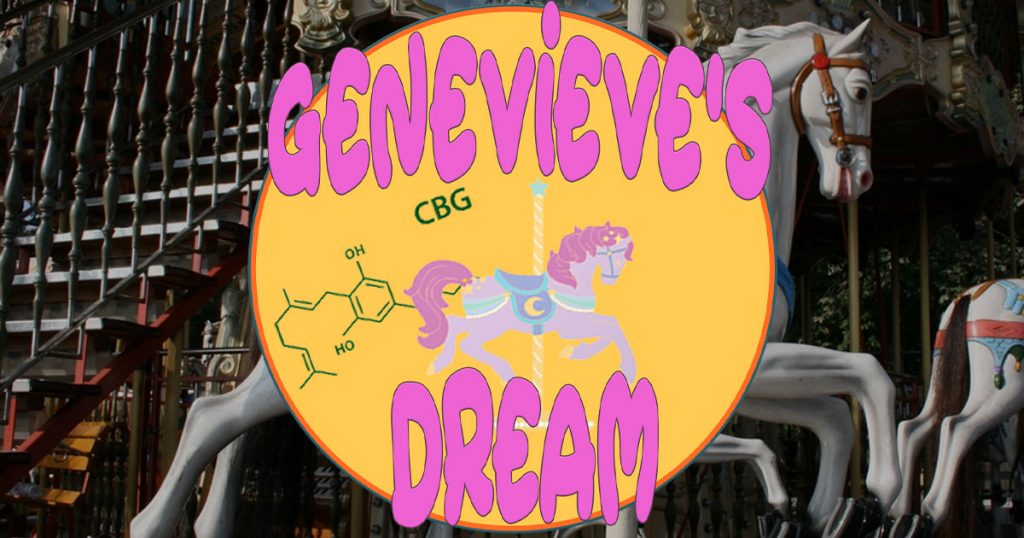The War may be over but for many Veterans, the battle for freedom continues:
The US Department of Veterans Affairs (VA) healthcare system is too quick in prescribing a plethora of pharmaceuticals including anti-anxiety drugs, antidepressants, sedatives, and other medicines for PTSD. This, on its own, hasn’t done much to stem the tide of veteran suicides. Cannabis, despite the overwhelming results shared by Veterans around the nation and world, is off the table as a schedule one substance in the eyes of the medical professionals given the responsibility of caring for those who once served our nation in a way that easily could have cost their lives. With the vast number of combat injuries that range from physical to mental, the plant with such promising results for so many people is still taboo as it’s a schedule one substance. Possession of cannabis is still a federal crime regardless of various state laws, keeping in mind the VA is a federal agency quickly reminds one that the US Government isn’t so friendly towards the plant being used by Veterans. The facts are simple in that 22 die daily to suicide – far more than have died in the war. The side effects of pharmaceuticals, addiction, homelessness, and the overall lack of resources for Veterans have been cited as the leading reasons for the cause of this tragedy by the moment – as well as federal cannabis prohibition. Three Heroes have told the stranger their story – it’s the word for word of their own account of how cannabis has treated their PTSD.
Kevin
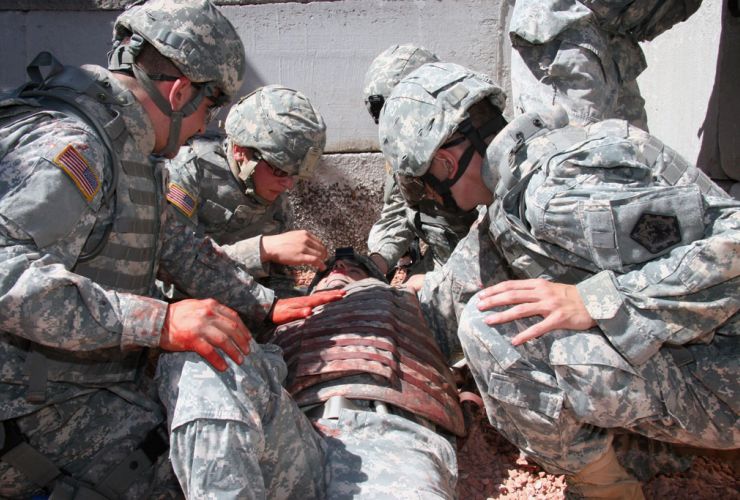
Kevin grew up in the Northwest, Snohomish specifically. He was a bit of a wild one, he said, and while he didn’t have a record, he had a reputation. After years of gangs, drugs, and crime, he decided to go straight.
“I was headed for an early grave or a prison cell,” he said. He decided to do a complete one-eighty and pursue a career in law enforcement. However, his reputation caught up to him. About a year and a half into criminology courses at a community college, he took a class taught by a local detective who was well acquainted with his past. That, he said, was the end of that. His career in law enforcement dead in the water, he joined the army. After partying his face off all summer, he shipped off to basic training in the fall of 1998.
A few sleepy years of peacetime passed, and then 9/11 hit and his world got crazy. He said he was extremely gung-ho about combat. He signed up to be combat infantry despite the 200-plus other jobs available to him because, as he told the recruiter, “I wanna blow shit up and get paid for it.” And indeed he did, as part of a route clearance and IED-defusing unit in Iraq. Iraq, he said, was great. “IEDs were kicking everybody’s fucking ass at that time,” he said. “We wrote the book on it. Now they have a handy-dandy woodchuck guidebook for how not to get blown the fuck up. That was one of the highlights of my career. It was a good tour; we were taken care of. General Milley, the current army chief of staff, was our brigade commander. He took great care of us. We were his only route planners and counter-IED asset.”
He complained of a severe lack of organization, saying that in contrast to Iraq, he felt like he was flying by the seat of his pants with no direction.
“I was a young E6 in charge of it all,” Kevin said. “It was quite the responsibility. Millions of dollars of equipment, 20 to 30 lives at any given time. And we were known as a high-value target because of what we did.” However, he didn’t lose a single one of those lives. “Everybody came home with all their shit intact,” he told me. “Don’t even ask me how.” “That’s one of the burdens I don’t carry,” he said, referring to service members who’ve lost comrades. The sheer intensity of the mission, however, was enough to give him the PTSD that has plagued him since returning home. “Here’s the rub on that,” he said. “When you’re wired that tight, and you know the stakes every single minute of every single day of every single mission, you don’t ever come back from that. I got back in 2007, but I never really came back. I’m still on patrol every single minute of every single day.”
His return home was less of a graceful re-entry and more of a crash landing. “I dove into a fuckin’ bottle, man,” he said. “I’m a recovering alcoholic. I’m one of the worst fucking drunks there ever was.” At some point, while he was working at Fort Bragg, he went on a bender, and a couple of officers had to track him down at a cheap hotel, where he was holed up with a couple of hired “friends” and the remainder of an ounce of the blow. “I don’t remember any of it,” he said. “What drives a man there?” His commander was planning to give him a dishonorable discharge but stripped him of his rank instead. Over the next couple of years, Kevin worked his way back up in rank. However, his high performance came at a price.
“I was already on a steady regimen of pills,” he said. “Between 2007 and 2012, I was addicted to prescription amphetamines. You don’t put in 100 hours a week in the battalion F-3 shop on coffee. I was cut off of that after I left Fort Bragg and went to Fort Polk, and I rapidly went downhill.” After his reassignment, he couldn’t get speed anymore, as he’d switched doctors and his issues with substance abuse raised eyebrows with his new healthcare provider. Faced with withdrawal, he said, his alcoholism deepened. “All I had was alcohol,” he told me. “I drank because I couldn’t stand being in my own skin. The more I felt like that, the more I drank, and the more I felt like that.”
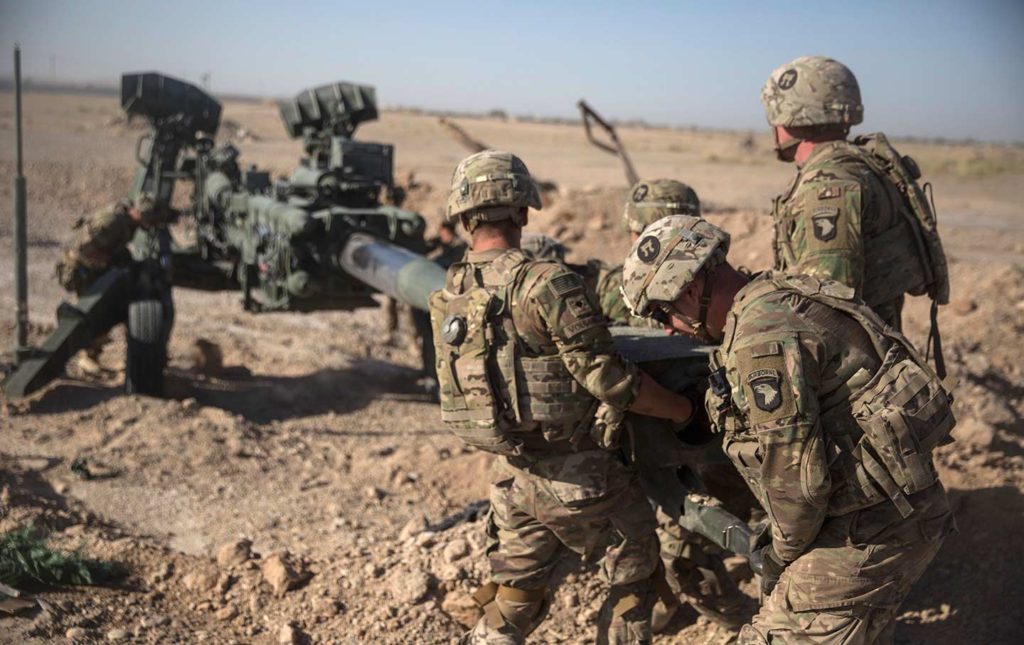
His drinking, he said, was the only way he had to cope with symptoms of his PTSD, the only way he could unwind after being wired so tight. But, he said, he was coming unwound. “It’s a fucking death sentence,” he said. “You tack on the seven different pills three times a day, and the side effects from all of those, and it makes you wish you were fucking dead.” Pot, which ultimately came to replace the pills and booze, first came back into his life on leave.
“Any time I could take an extended period of leave, two weeks or more, I could always go get a bag of reefer,” he said. “I knew from the first time I did it, that was gonna be my shit.” “It has its pluses and minuses,” he admitted, but said it was preferable to the alternative. “When you’re as heavily medicated as I was, the side effects from all the pills [are worse]. I was in my mid-30s having to kick fucking Viagra. I was fat and lazy. It was the pills.” Now, he said, he goes to Alcoholics Anonymous five days a week and uses pot instead of booze to help cope. At some point, he went into the VA and informed them that he was done with pharmaceuticals and would be smoking medical cannabis from there on out.
“I’m on this regimen of pills [that I hate], and now I’m in a state where cannabis is legal and I’m going to pursue that,” he told his psychiatrist. “Matter of fact, it’s growing already.” They offered no comment, he said, just advice on how to safely detox from his prescriptions. That process was difficult, and he recalled one particularly tough episode where he got into a fender bender on I-5. His anger took over and he got out of his car ready, he said, to beat the other driver to death on the side of the freeway. He didn’t, thankfully, but that episode nearly scared him into going back on his medications. Nearly.
“It wasn’t me; it was the pills,” he said. He stuck with pot, and he credits it for turning his life around. Weed helps him calm down without the side effects other prescriptions have, he said. It also helps him stay off the sauce. If not for pot, he said, he’d be dead. “If you put that bottle in my hand, I’d be dead, I’d be dead by the end of the weekend.” Now he grows his own high-CBD cannabis at home—he said he can’t find enough through the recreational stores—and the pain relief it affords him allows him to get out and exercise, which further helps his mood. CBD has also been shown to be anxiolytic, meaning it reduces anxiety. Kevin freely admitted to his issues with anger and the potential to be a danger to himself or others. But weed helped him cope with that anger where prescription drugs hadn’t. “After four years [of cannabis], you wouldn’t catch me in a doctor’s office asking for a scrip for something to make me feel good,” he said. “I know exactly who and what I am. That’s the whole moral of the story. If I’ve got to be on something to regulate my mood and behavior for the rest of my life, this is going to be it.”
Justin
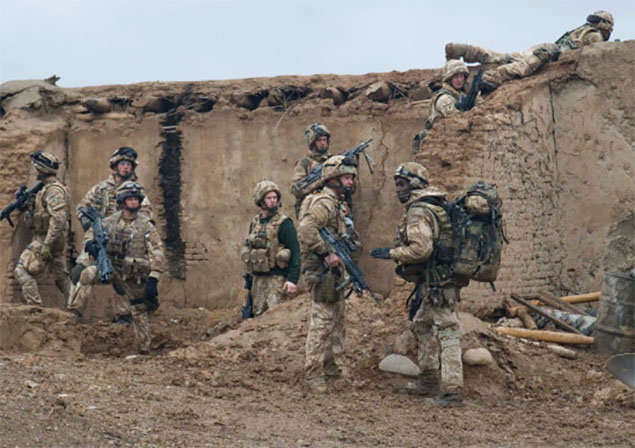
Justin, who was a helicopter pilot in Iraq and elsewhere, had an eerily similar story. After flying in and out of combat zones and being constantly on alert, he found he couldn’t turn it off when he got home. “Basically, you get to this point where you’re able to process everything so fast,” he said. “You have half a second to react, technically a third. A third of a second to even process. That’s how I know how to operate.” Going through civilian life in a state of constant danger awareness was unbearable, he said. He had all the classic symptoms of PTSD: nightmares, insomnia, aggression, etc. The VA’s answer was pills.
“They just give you meds, and you take ’em and you take ’em and you take ’em, and if shit starts going bad, you just keep taking ’em,” he said. “You get angry, angry, angry, and you just keep taking meds, and you go, ‘Why am I angry?’ Because you’re taking meds.” The side effects and the negative interactions of the drugs he was on, he said, were making his life a living hell. At one point, he got serotonin syndrome, suffering constant and uncontrollable muscle spasms. When he would take all the pills he was supposed to, it would wreak havoc on his bowels, sending him to the bathroom hourly for periods as long as 13 hours.
He lost 60 pounds in the summer because he was afraid to eat and found himself completely devoid of energy. One medication made him feel overwhelmed with depression, he said he was drowning all the time. He failed out of college thanks to Prazosin, a medication that prevents PTSD-induced nightmares because the drug would leave him stuck in bed for three hours every morning, he said. The medication suppresses adrenaline spikes, and while he would wake up at a normal time, whatever it did to suppress those spikes left him completely without motivation. Though he wanted to, he simply couldn’t make himself get out of bed. On his initial cocktail of VA medications, he said, “The difference between a good day and a bad day is like skating on thin ice. Above the surface is the reality of suicide. It happens all around, got it, people die, people choose. Then right beneath that ice, you’re instantly going, ‘Suicide, suicide, suicide.’ That’s real, versus the idea. That’s how thin you are, whether you slip, fall, crack, or whatever. That was my medication.”
Despite admitting to having suicidal thoughts, he said, the VA kept giving him more meds. “‘Fuck, you trust me with all this?'” he said to the VA, incredulously. “‘I just told you I tried to kill myself a couple of weeks ago. I put a gun to my head at 7:08 in the morning because I couldn’t take it anymore, and then you give me more?'” During his darkest times, when his cocktail of medications made death seem pretty peachy, he leaned on weed. “I was already smoking pretty hardcore at that point,” he said. “That was the only thing that kept it all together. I was having a crisis.”
To get out of that crisis, Justin said, “I stopped drinking. I would drink a fifth of Black Label. It helped me pass out, and it helped me forget. I was trying to drown that shit. I had to [get off the pills]. Had I continued taking those things, I would have killed myself. I stopped and smoked weed.” Weed helped him slow down without the intense side effects of the other medications and the booze, he said. He also decided to take a more active role in his medical regimen. “Now I’m on Cymbalta” and a few other meds that work better together, he said. “I took control of my shit, and that got me going.” Despite his new meds, he knows PTSD is something he will live with forever. He doesn’t see weed as a replacement for his medication, but he does see it as a vital supplement to it.
“Now I’ve found a good spot [with medication], but still there are certain things you can’t deal with,” he said. “You’re used to working at 90 percent. Your anxiety level is up here because there are people trying to kill you. You get so caught up in that, and life becomes just that—so when you come back home, you’re still at 90 percent when the entire world is at 9 percent.” That transition from combat back to civilian life is the root of the problem, he said.
“That is where 22 veterans die a day,” he said. “Nearly once an hour, you have a veteran dying. Whether you have a veteran or a person, it’s shitty regardless, but these people fought for our country.” Though he didn’t think weed was a miracle cure by any means, he said that it was an especially great way to help vets manage the sudden transition back to civilian life, in addition to its PTSD-related benefits.
“We need to slow down,” he said. “No one teaches that.” He added that he “unearthed 50 gallons of topsoil yesterday. I weeded 400 square feet of grass. Some Zen shit. Now I take the time to understand and process. It slows us down.” Thanks to the pot, he said, “I’m able to be a person. I’m able to transition, to live a life in Seattle. I’m employed full-time. I’m gunning toward a promotion. I have guys who look up to me, guys who I’ve gotten jobs for, guys who I’ve stopped from killing themselves. If I wasn’t smoking weed if I was drinking—are you kidding me? Weed saved my life and a bunch of others too.”
Andrew
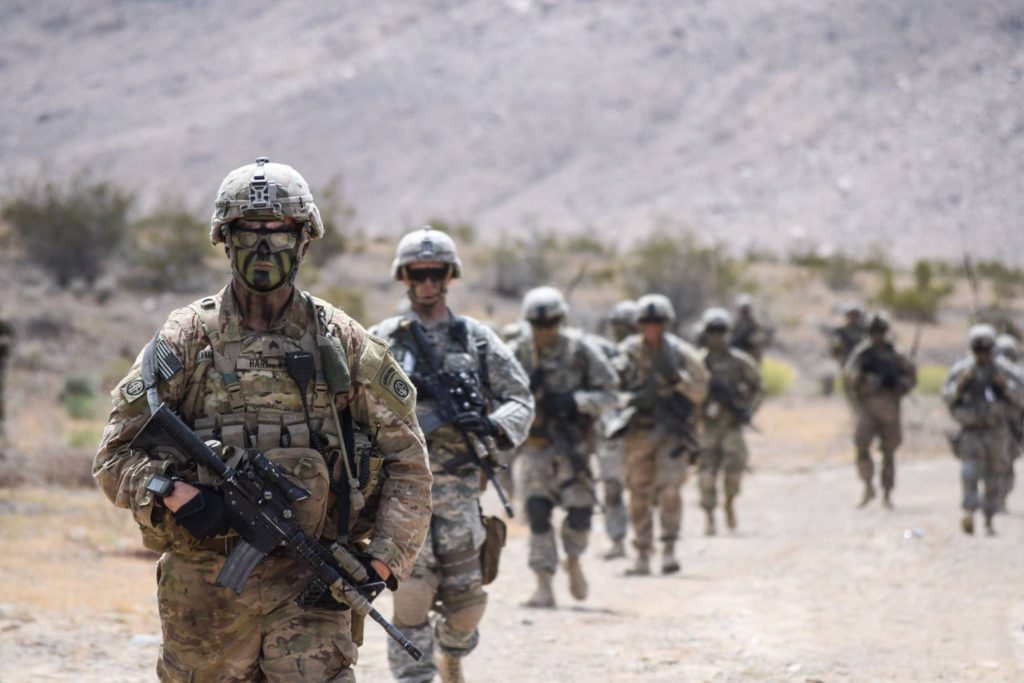
Andrew did six years of active duty in the army. His first three were with the 82nd Airborne, including a 30-day stint in New Orleans dealing with the aftermath of Hurricane Katrina.
“I saw some things here in the United States that I ultimately ended up seeing in Iraq,” he said. Though he doesn’t specify what those things were, it’s not hard to tell from his tone that he didn’t exactly cherish the memory.
On his first tour, he lost six comrades. After his deployment in Iraq and the end of that tour, he reenlisted with a support and reconnaissance unit at Fort Lewis, getting out in 2010. After the army, he headed to Wyoming to go to school. “I was fine for a while,” he said. “The first six months, I didn’t notice anything unusual. I was getting 4.0s in school, things were good.”
But then PTSD started gradually creeping in. All the symptoms of PTSD were there, though he hadn’t identified them yet. “It was a lot of sleeplessness, a lot of anger,” he said. “I wasn’t leaving my house; I started isolating a lot.” To cope with the symptoms, he said, “I started drinking a lot more just to sleep at night. Sometimes I would drink two-fifths of whiskey and half a 12 pack just to be able to get a couple of hours of sleep. I’d crawl into the bathtub with a .45 and a bottle of whiskey. I started really pulling away, withdrawing from society. I knew I needed help, so I went to the VA in spring of 2012.”
There, he had a brief conversation with a brusque doctor who couldn’t be bothered to set down his keys or cell phone during the interview, he said. After five minutes and three questions, he had a diagnosis, and with the diagnosis came pills—lots of them. The pills helped at first, he said, but he was still drinking and still having problems. His hands would shake uncontrollably. Whether it was the booze or the trauma is anyone’s guess, but he knew something was wrong. He was enrolled in psychology classes at the time, and he began identifying some of the classic symptoms of PTSD in himself. PTSD had not been his diagnosis. Besides the lack of sleep, he was having intense anger outbursts and found himself in a constant state of hyper-awareness.
At that point, he said, he was also using cannabis, but purely recreational. “I had a cocktail at that point,” he said. “I was using alcohol, cannabis, and the VA’s pharmaceuticals all at once. It was just kind of a roller coaster.” That cocktail was nearly his undoing. “I ultimately did try to take my life three times,” he said calmly. “The third time, I was just like—I don’t know what flipped or what happened—but I asked myself the hard question: ‘What are you gonna die for?’ The reality was, I wasn’t going to die for anything. I lost six friends on my first deployment, and they at least died for me to be able to live.” He credits that stark realization with his first steps to kicking booze.
“I don’t know if that was what switched [for me], but I stopped drinking,” he said. “Not like immediately, but I started being more aware of it, stopped with the hard alcohol.” However, there were still the pills. “I was still really dependent,” Andrew said. “I was still in the VA’s system. At one point, they had me on 17 [pharmaceuticals] a day. That was benzos, SSRIs, narcotics—you name it, and I more or less have taken it.”
They kept trying different medications, he said, but nothing was working for him. When he was 27, the VA came to him and asked, essentially, “What more do you want from us?” He’d taken every different type of trauma and anger-management class available, and tried nearly every pharmaceutical out there, to no avail. “I don’t know,” he told the VA in response. “The system is obviously broken, but I don’t know what’s wrong.” “That was the light bulb,” he said. “I realized they were only going to treat my symptoms, they weren’t going to help me heal.” He described one chilling episode where he was prescribed two medications with potentially fatal interactions: “I was literally on the floor in the kitchen one night in tears because the shit that they were giving me wasn’t working and I was in so much pain. When I got to the VA the next day, they wanted to put me on tramadol [a potent opioid pain medication]. The doctor had me click something on the screen, and I didn’t really think anything of it.”
“When I got home,” he went on, “I had two bottles sitting on the kitchen counter. I went into the bathroom and I came back out, and my sister had the two bottles in her hands and she was like, ‘Have you taken these yet?’ I said no. She was in school for nursing, and she flips open her drug-interactions book—and the two interactions are seizures and death for venlafaxine and tramadol. I was taking 325 milligrams of venlafaxine and they had given me a high dose of tramadol. It would have looked like an accidental death.” As he summed it up: “I was a problem child. Nothing they were giving me was working, so they sent me to an outpatient clinic that was closer to my house, and then they give me an accidental death cocktail, basically.”
Thankfully, in 2013, he made his way to Washington State and found Rainier Xpress, Patrick Seifert’s dispensary. Discovering the medical potential of cannabis was a game-changer for him. “I met Patrick, and they started introducing me at first into flower strains,” he said. “Strains that were specifically grown for PTSD, like Nigerian Sunshine. I knew about CBDs just through my own research. I love books and I love research, so I started doing a lot of research and I kind of had an idea of what I wanted to do. With their help, they really helped me pinpoint it.” Weed also served as an effective substitute for booze. Considering that he was diagnosed with preliminary liver failure at 27, kicking pills and booze clearly was a lifesaving move. When he wanted to drink a beer, he said, he smoked a joint. If he craved a shot of whiskey, he’d do a dab. Some people said he was simply replacing one substance-abuse problem with another, but he rejects that idea.
“At the end of the day, the thing that I like to tell them is, ‘What’s the difference between me being hooked on the VA’s drugs for the rest of my life or me being on something that’s at least going to let me live?'” On weed, he said, he was able to finish his bachelor’s degree within four years. “I don’t think I would have been able to do it without cannabis,” he said. “If I continued down the path I was on in Wyoming with all the alcohol and stuff they had me on, I don’t think I would have been able to finish school.” Or stay alive, he added.
He would have been dead “either by my own hands or by [the VA’s] hands,” he said. While he still has his bad days, where he cloisters himself at home and medicates all day, he has plenty more good ones. “It’s the cannabis,” Andrew said. It has given him a drive and energy he hadn’t previously thought possible. “For me, it’s changed my life.” Asked about the VA’s stance on treating PTSD with pot, he didn’t mince words. “For them to say that this is not medicine is absurd.”
Veterans have been fighting a battle for cannabis that simply should never have been a war at all. Many can assume the same about conflicts the U.S. has been in over the centuries – but with cannabis, there was no enemy for soldiers other than their own country. Warriors have gone off to battle only to come home to hatred, discord, and a divided populace that can’t make up its mind to support our men and women in uniform or to be upset about why we’re at war or the cost of it. The bottom line is those that have fought for our nation’s freedom do not deserve to be at the brunt end of the cannabis movement – after all the entire fight for the plant, freedom is based on a nation that lied to its citizens and used propaganda in a literal war on people. What’s beyond ironic about this is that the very same people lied to in the reefer madness days ended up going to war for the country, getting injured, and then once home having to deal with pharmaceuticals that caused them to become further depressed, suicidal, and to lose their lives not from the war against other countries but to one of the biggest lies and scandals of mankind – Cannabis Prohibition.
We need the ‘leaders’ in Washington D.C. to end the B.S. – allow people to live freely and medicate with plant-based alternative medicines that don’t have the side effect of death!
-Mike Robinson, Cannabis Patient and Founder, Global Cannabinoid Research Center. But, most of all, Genevieve’s Daddy
Sign up to receive informative and exciting email updates from Mike's Medicines!
You can sign up for our mail list here:
Didn't find what you are looking for?
Find exactly what you want to when you want it.
Browse through our archives by date, category or by entering a topic in the provided search field.
Archives
Categories
More to come as we have time to add them – there’s 100’s of additional publications!
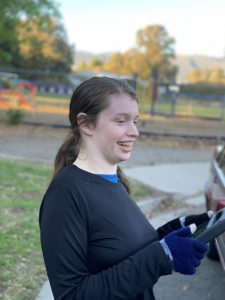
We’ve made it easy for you to read Mike’s Medicine Blog or visit any of the Menu items right from here. It is that simple! Explore Mikes Medicines by clicking on the button below:
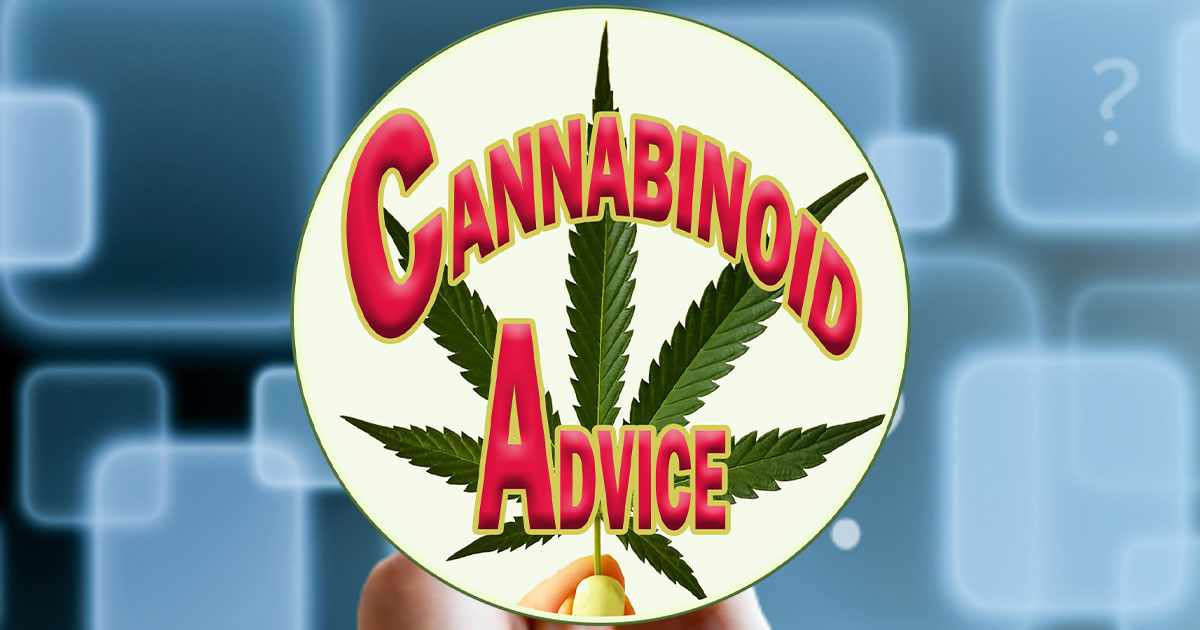
Read about how Cannabis Compassion and love created Mike’s beautiful family, the Cannabis Love Story inspires millions daily:
Genevieve’s Dream is all about her love for the Carousel coupled with her Cannabinoid Medicine journey – read more and make contact if you’re interested in collaborating with Mike!
The Global Cannabinoid Research Center is a trusted source for education, R&D, and more – make contact with us to collaborate.


